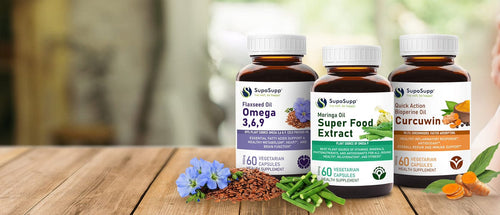The Ayurvedic clock - Do you follow the rhythm of nature?
Time stands for movement and change and greatly affects the way you feel, behave and how your body functions. The days, seasons and also your life follow a certain natural rhythm. According to Ayurveda, this rhythm influences how you feel physically, mentally, emotionally and spiritual
The Seasons According to Ayurveda
Just like your body and mind respond to daylight, you also experience an influence of the seasons. Ayurveda divides the year into three seasons, according to the three doshas. Through sun, rain, daylight, moonlight, changes in temperature, wind and thunderstorm, they too are characterized by the influence of the elements. This can cause, for example, changes in your blood pressure and emotions, or you may feel less or more need for rest or activity. To feel good, it is wise to take the seasons into account.

Kapha
During winter - December- the end of spring (April) - it is the time of Kapha. With the winter solstice, a time of growth and humidity begins. Since the Kapha energy is at its peak this time of the year, it could be that getting up from bed is a little harder these days. Clouds, snow and low temperatures are responsible for typical Kapha complaints such as cough and colds and other airway related complaints. The winter is an excellent time to stimulate the cold and slow Kapha energy and to make your body produce some extra warmth through exercise. This way, you also prevent unwanted weight gain. Cold dishes like salads are best avoided because they don't warm your body and burden your digestion by asking for heat which is in less supply. Instead, tuber vegetables like carrots and slightly oilier dishes can give the desired warmth. Make sure to absorb as much daylight as possible for a healthy metabolism and a good mood. A daily walk is very much advised.
In the springtime, the snow melts and the humid nature slowly dries. Nature gradually starts to grow again, but has to shake off the heavy and lazy feeling of the winter. Your sleep will become lighter and you will start to feel a natural desire for lighter food in smaller portions.

Pitta
The pitta season starts at the end of spring with the solstice and reaches its peak in the months of May, June, July and August. This period brings you hot productivity. Temperatures rise, plants sprout and grow and deliver fruits. This is the typical period for heat related complaints like sunburn and skin rashes. In this season, nature gives us cooling food like blueberries to control the rising fire. Did you know that this is the time your body produces special chemicals for better digestion of the fructose in the fruits?
During this period, your brain is the most active, which enables you to function with less hours of sleep and to get up early. This is also the time for outside activities. Take long walks, but make sure you don't get overheated by extensive exercise.

Vata
The Vata energy you feel mainly during late autumn and early winter in September - October - November. This is the season of movement, (inner) dryness, wind and beginning cold. Leaves are falling, the wind blows and the days become shorter. You may experience deeper sleep and a tendency to turn inward. The heightened Vata energy causes dryness in the body. Therefore, it is important to drink plenty of herbal teas and water to avoid laziness, mood swings and dry skin. Adding a little extra oil or ghee to your meals also helps to fight the dryness. Natural oil can also help to protect and moisture your skin. Although you may feel less inclined to go outside on darker days and evenings, it is much recommended to spend a little time in fresh air and natural daylight. It will help you to sleep well and keep a good mood. Avoid cold and dry food such as popcorn, crackers and cookies, yoghurt, cornflakes and raw vegetables. Make sure your meals are warm and nourishing, especially your breakfast.
According to Ayurveda, autumn and spring are excellent times to cleanse your body through a detoxification process called panchakarma.
Sources:
- Textbook of ayurveda, fundamental principles of ayurveda, volume one, Vasant D. Lad, M.A.Sc., 2002, The Ayurvedic Press, Albuquerque, New Mexico, USA.
- Ayurveda, the science of self-healing, a practical guide, Vasant Lad, 2009, Lotus Press.
- Change your schedule, change your life, dr. Suhas Kshirsagar, 2018, Harper Wave.
- Ayurvedic healing, a comprehensive guide. Dr. David Frawley, 2013, Lotus Press.
- Idiot’s Guides – Ayurveda. Sahara Rose Ketabi, 2017, DK Publishing.
This article was originally published by Daphne Beek. from Sri Sri Tattva Eu on (https://www.srisriayurveda.eu/) and is reposted here with their permission
Disclaimer
The sole purpose of these articles is to provide information about the tradition of Ayurveda. This information is not intended for use in the diagnosis, treatment, cure or prevention of any disease. If you have any serious acute or chronic health concern, please consult a trained health professional. Check with your doctor before taking herbs, herbal food supplements or using essential oils.





